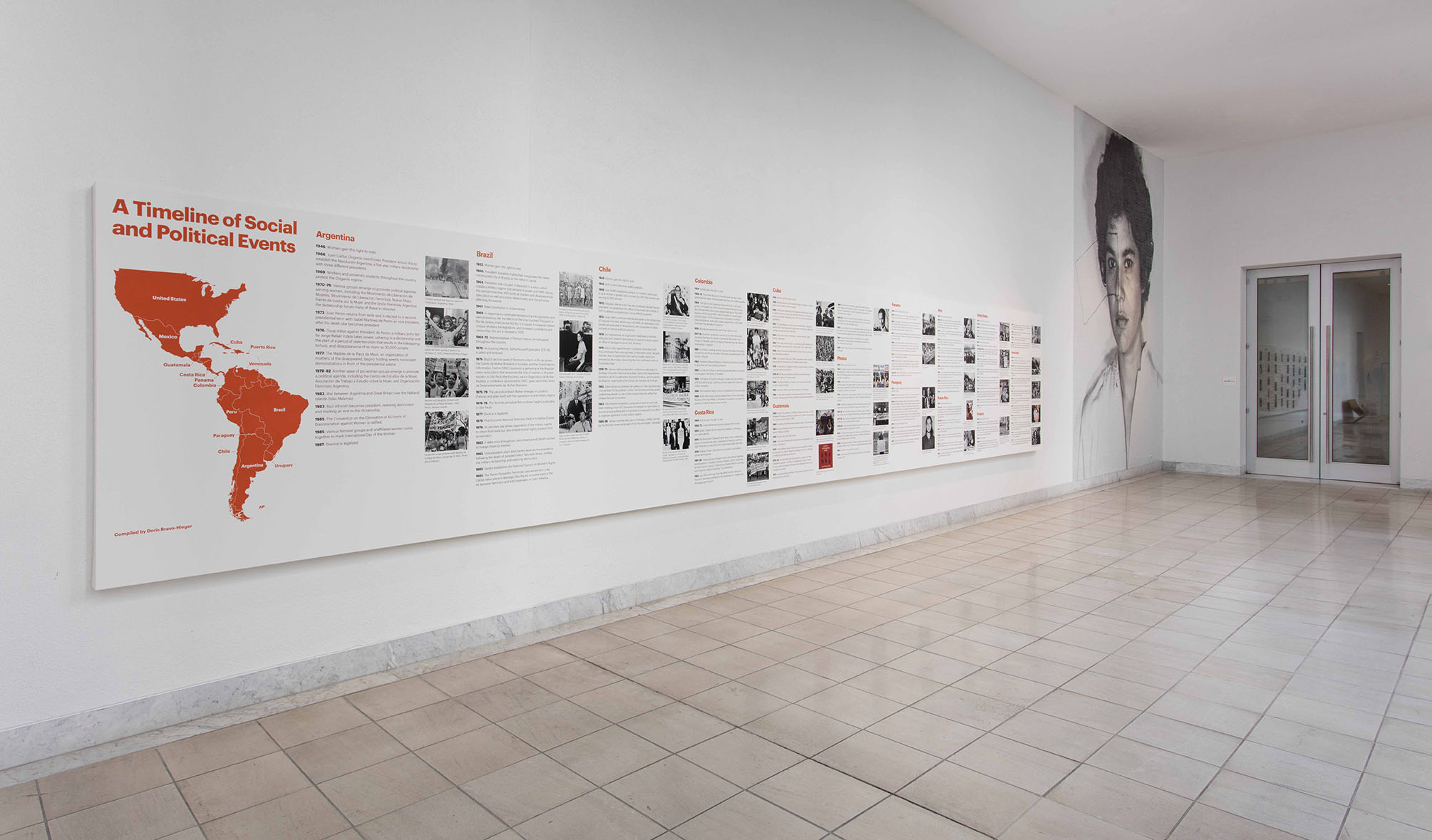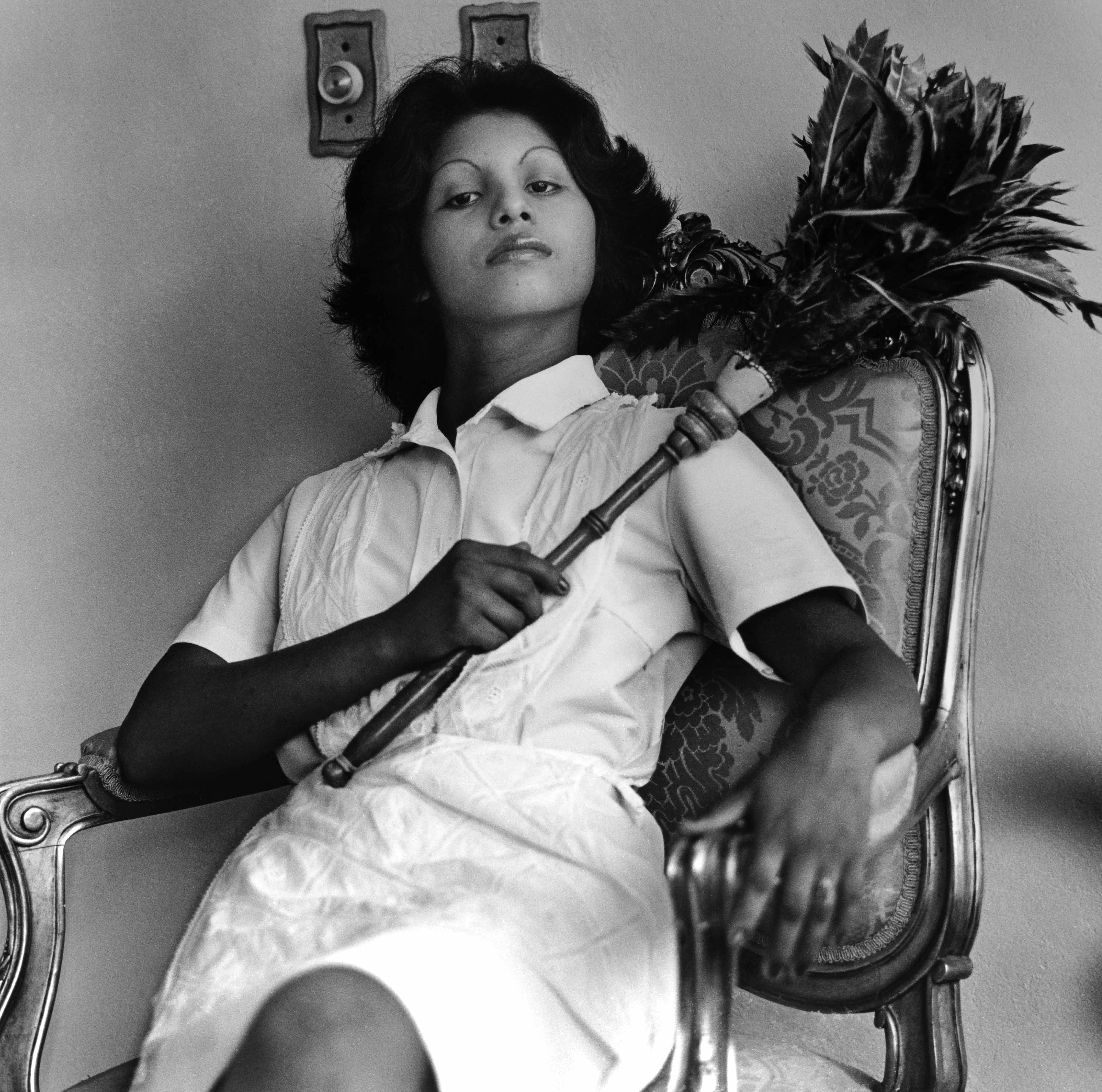Professor Cacoilo
Art 263
Presentation Date: October 3, 2018
Group One Presentation Summary: Racial and Ethnic Stereotypes about Latin Americans in the United States
The Radical Women: Latin American Art, 1960-1985 exhibit was the first art exhibit focused on Latin American art. Although the curators had access to a plethora of artists, the curators limited their choices to Latina artists to display the female experience in Latin America from 1960-1985. The exhibit divided the projects into seven topics among which were political critique of government violence, feminism, racial/ethic stereotypes, 'Mapping the Body,' and rape. The projects included photographs, sculptures, and paintings which displayed violence, abuse, and reinterpretation of self. Despite including 'feminist' works, none of the artists in the exhibit identified as feminists, because they believed 'feminism' did not represent Latin American culture or values and excluded racial/ethnic minorities. The selected projects for the group presentation were Are you Puerto Rican? by Sophie Rivera and Edita (la del plumero) by Sandra Eleta. The overarching theme between the photographs was the exploration of racial stereotypes.
 |
| Radical Women: Latin American Art, 1960-185 Exhibit |
Are you Puerto Rican? by Sophie Rivera
Sophie Rivera confronted the racial profiling of New York Puerto Ricans as criminals in her collection of photographs Are you Puerto Rican? (1970s). During the time of her project creation, the local police department began to close cases by randomly arresting Puerto Ricans for crimes that they did not commit. Local newspapers contributed to the arrest of Puerto Ricans by accusing them of crime in New York neighborhoods and instilling fear among locals about the alleged danger of Puerto Ricans. In an attempt to highlight the absurdity of identifying Puerto Ricans on city streets and categorizing them as criminals based on physical appearances, Rivera sat on her porch and asked passersbys if they were Puerto Rican. If they denizens were Puerto Rican, she took took them into her home studio in Harlem and captured their anonymous photographs. Rivera then presented her collection of anonymous portraits to New York authorities and newspapers, demonstrating that there is no way of identify Puerto Ricans solely based on their appearances. Despite the fame of her work, Rivera keeps her photographs private.
 |
| Photograph of the 2017 Puerto Rican Day Parade highlighting the diversity of Puerto Ricans |
Edita (la del plumero) by Sandra Eleta
 |
| Edita (la del plumero) by Sandra Eleta (1977) |
Sandra Eleta was born and formally educated as a photographer in Panama. After immigrating to the United States for what she had predetermined to be a temporary period, she sought employment using the documentation of her formal education. However, all employers denied her employment based on her gender and nationality, citing that Latinas--specifically Panamanian women--should be maids. Although the feminist movement had made strides years before her immigration to America, her less educated Caucasian female peers had received employment fairly easily solely for being Caucasian. Desperately needing a source of income, she accepted a position of a house maid and decided to confront the American stereotype that all Latinas are maids through the use of photography. In the picture shown above, she captured her portrait sitting in an elegant manner on a metallic chair while wearing her maid uniform and holding a feather duster. Her arms are positioned rigidly in the chair and her chin is slightly raised in the style of European royalty as she indirectly 'looks' at her audience. Her position in the photograph purposely emulates the famous portraits of European rulers, in an attempt to demonstrate the Latinas are dignified regardless of their gender, ethnicity, and occupation. Her portrayal of a 'dignified maid' revealed the contradictions of American feminism and racist stereotypes held by the majority of Americans at the time.
Conclusion
Overall, both works explore American racial/ethic stereotyping of the Latinx population during the 1970's. Although the photographers had different nationalities and confronted different stereotypes, Rivera and Eleta successfully demonstrated the absurdity of ethnic profiling. Unfortunately, racial profiling of Latinx as violent, uneducated, and maids continue in the United States today, but activist art such as the aforementioned projects raise awareness about the true character of Latin America.
No comments:
Post a Comment